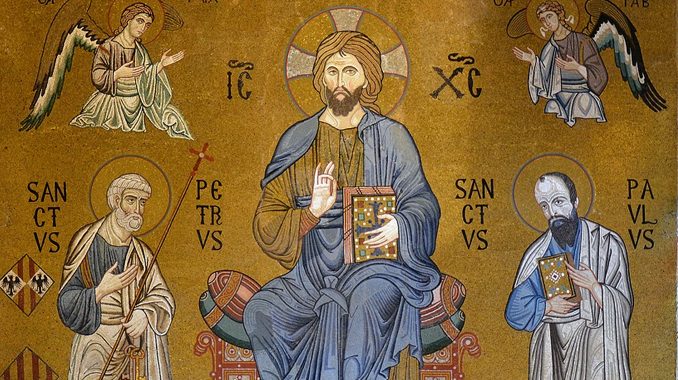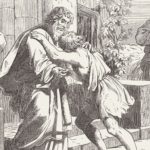Sermon on the 6th Sunday after Pentecost
In the name of the Father and the Son and the Holy Spirit.
Brothers and sisters,
Holy Apostle Paul in the epistle to Romans, which was read today, exhorts every Christian to act accordingly to the position he was placed by God’s providence.
The Apostle likens the Church to the body:
“For as in one body we have many members, and the members do not all have the same function, so we, though many, are one body in Christ, and individually members one of another” (Rom 12).
There are different members in the body, and every member has its own function. Every member is vital and irreplaceable when it is a part of the body, but having been cut off it becomes useless and cannot exist by itself, without the body.
Likewise a Christian can live only in the Church, which is the body of Christ.
Every member receives nourishment from the body; it can live only as long as it takes part in the vital processes of the body. Vital processes of the body consist in endless sharing, exchange between the members of the body, and if this exchange is disturbed, the body suffers, becomes ill. In the same way the Church members should minister to each other with the gift they received from God.
The Apostle continues:
“Having then gifts differing according to the grace that is given to us, let us use them: If our gift is to speak God’s message, we should do it according to the faith that we have; if it is to serve, we should serve; if it is to teach, we should teach; if it is to encourage others, we should do so. Whoever shares with others should do it generously; whoever has authority should work hard; whoever gives charities should do it cheerfully”.
Here the Apostle, speaking of different ministries in the Church, names them “different gifts” of God’s grace, because we have everything from God: from Him our natural abilities, from Him our physical strength and spiritual energy, from Him, favourable circumstances.
We find a similar message in the Gospel parable of the Talents: The Master distributed his silver to his servants, so that they would make profit from it. The one who hid his portion of silver (i.e. talent) didn’t make any profit. It was necessary to pass silver to the hands of bankers in order to make profit.
This means that we should not keep our talents only for ourselves, but share them with our neighbours. The Lord in His providence gives people different talents, so that everyone may be of service to others, and that we all need one another.
Our talent, with which we may minister to the Church and to others, is not only money, but also: spare time, knowledge, skills and labour. All this we should turn into spiritual profit for our soul.
One day we will bitterly regret our time and resources wasted unprofitably, not thinking of eternal life.
Further the Apostle depicts the Christian virtues in such inspired words: “Let love be genuine. Abhor what is evil; hold fast to what is good. Love one another with brotherly affection, in honour giving preference to one another; be not slothful in zeal, fervent in spirit, serving the Lord; rejoicing in hope, patient in tribulation, steadfast in prayer; contributing to the needs of the saints, given to hospitality”.
The Apostle wants us not only to do what is proper, but to do it with great zeal.
And in the first place he puts love:
“Love one another with brotherly affection, in honour giving preference to one another.”
Here the Apostle shows the source from which love originates. This is humility, i.e. if we consider others higher than ourselves. On the contrary, quarrels and divisions come from pride and self-importance.
If love consists in doing good to one’s neighbours, then the first step towards love is to do no wrong to them. “Love does no harm to a neighbour” (Rom 13) – the Apostle says.
The most common sin against love is judging. When we judge our neighbour, we sin against love, because “love… thinks no evil…and bears all things” (1 Cor 13). Judging behind one’s back destroys love, and, so to speak, poisons the spiritual atmosphere.
Why do we judge? – Because we don’t know our own weaknesses, and look down upon others, considering ourselves better. Thus, the Apostle, quite properly, after saying: “Love one another”, adds: “in honour giving preference to one another.”
Let our Lord direct us towards the way of these two primary virtues: humility and love, which can lead us to the heavenly kingdom.
Amen.










